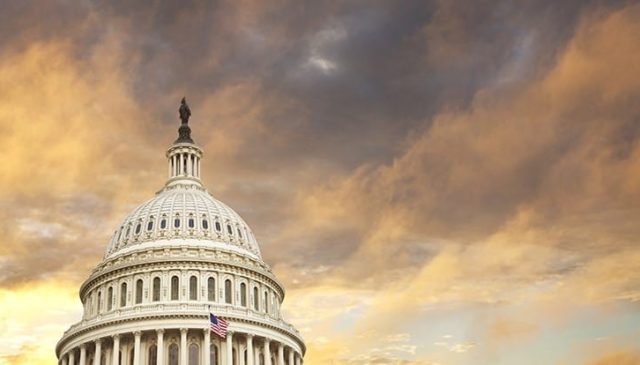
Updated: 1:51 p.m. Eastern Standard Time, Dec. 4
The U.S. House of Representatives has passed the Marijuana Opportunity Reinvestment and Expungement (MORE) Act, H.R. 3884, to remove cannabis from the U.S. Controlled Substances Act. It passed 228-164.
The bill will now go to the U.S. Senate, where Congress members expect it will not pass.
Cannabis’ removal from the U.S.’ list of controlled substances, said U.S. Rep. Sheila Jackson Lee (D-Texas) in a Dec. 2 Rules Committee hearing, “means that going forward, individuals could no longer be prosecuted federally for marijuana offenses. This does not mean that marijuana would now be legal in the entire United States—a very important point. It will simply remove the federal government from the business of prosecuting marijuana cases and will leave the question of legality to the individual states.” Jackson Lee is an original cosponsor of the act.
RELATED: UPDATE: UN Votes to Remove Cannabis From List of Most Dangerous Drugs
In addition to descheduling and decriminalizing cannabis, the MORE Act creates a “Criminal Justice Office,” which will, among other things, create a grant program to provide job training and reentry services; and provide legal aid, including for the “expungement of cannabis convictions.”
The act places a 5% federal tax on the sale of cannabis products; that tax will then increase by 1% each year and cap at 8%, according to Congress members who spoke during the Dec. 4 full-floor U.S. House debate.
It also directs the Small Business Administration to create a “Cannabis Opportunity Program” that would “assist small business concerns owned and controlled by socially and economically disadvantaged individuals.”
Vice President-Elect Kamala Harris originally introduced the MORE Act in the Senate, and Jerrold Nadler (D-N.Y.) introduced the bill in the House.
In the Dec. 4 House debate on the MORE Act, original cosponsor Barbara Lee (D-CA) expressed her support for it.
“I tell you—we have got to, colleagues—we have got to give our young people a second chance, so please vote yes on this bill to help us move our unfinished business of liberty and justice for all forward,” Lee said. She noted racial disparities and mass incarceration that are present in the U.S.’ criminal justice system.
Matt Gaetz (R-Fla.) is the only Republican in the U.S. House or Senate to cosponsor the MORE Act, according to Congress.gov.
RELATED: How U.S. House, Senate Results Could Influence Cannabis Legislation
The Dec. 4 vote was bipartisan, with five Republicans and one Independent voting in favor of the act. Six Democrats voted against it.
Gaetz said in the Dec. 4 hearing that Congress members who oppose the act are not aligned with the opinions of a majority of Americans.
“I’m going to vote for the MORE Act,” Gaetz said during the hearing. “It won’t pass the Senate. It won’t become law. But then we should come back in the 117th Congress, and we should truly do more for our people.”
Numerous opponents of the MORE Act expressed concerns in the Dec. 4 hearing, as well as in the Dec. 2 House Rules Committee hearing, that Congress should not prioritize cannabis legalization over a new COVID-19 relief package. Supporters of the bill have indicated that the two initiatives are not mutually exclusive.
The Minority Cannabis Business Administration (MCBA) stated in a press release that it supports the bill but opposes specific provisions.
“Although Minority Cannabis Business Association (MCBA) supports and applauds the social equity provisions including the expungement of records and the establishment of an Opportunity Trust Fund and the Cannabis Justice Office, we have grave concerns over the provisions in this bill that we believe would have an immediate chilling effect on individual members in our community and minority business owners more broadly,” stated the release.
A recent U.S. House amendment changed the MORE Act. Alterations include limiting cannabis expungement to people who have been charged with nonviolent federal offenses and to those who have not been sentenced with an “aggravating role adjustment” for directing or overseeing federal criminal activity. It also directs the U.S. Comptroller General to include, as part of broader research on cannabis, the “uses of marijuana and its byproducts for purposes relating to the health, including the mental health, of veterans.”
